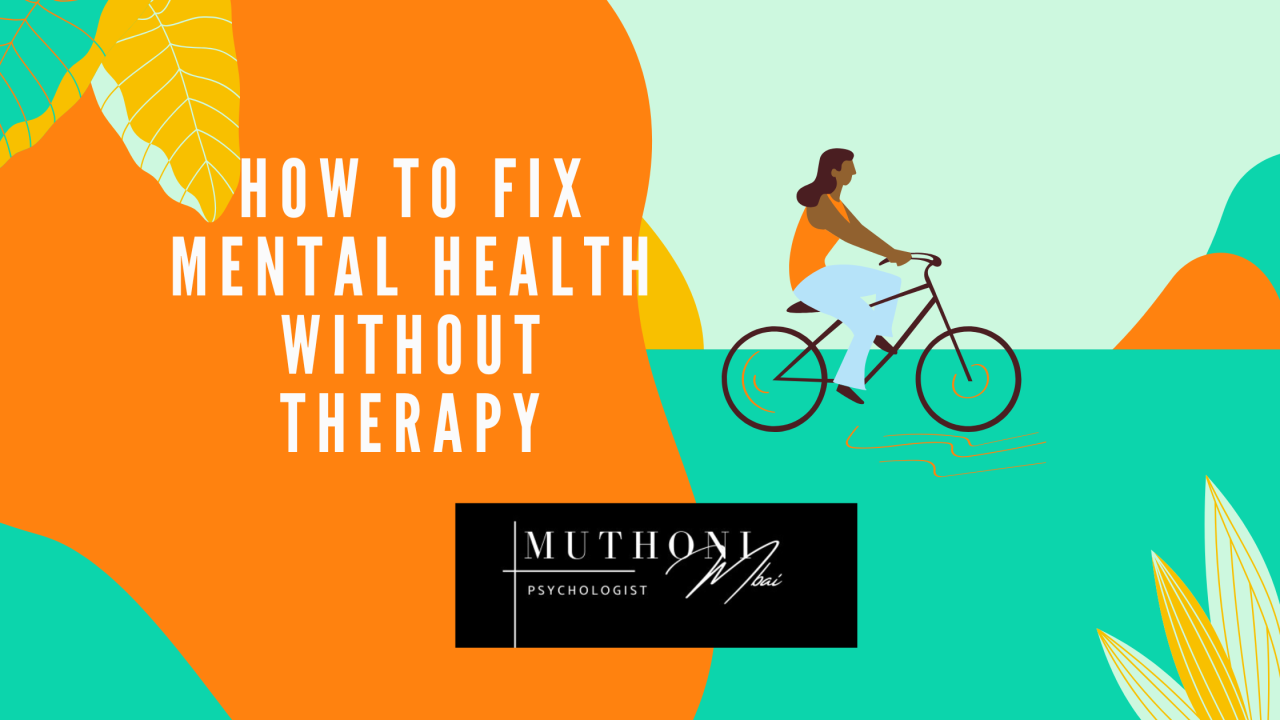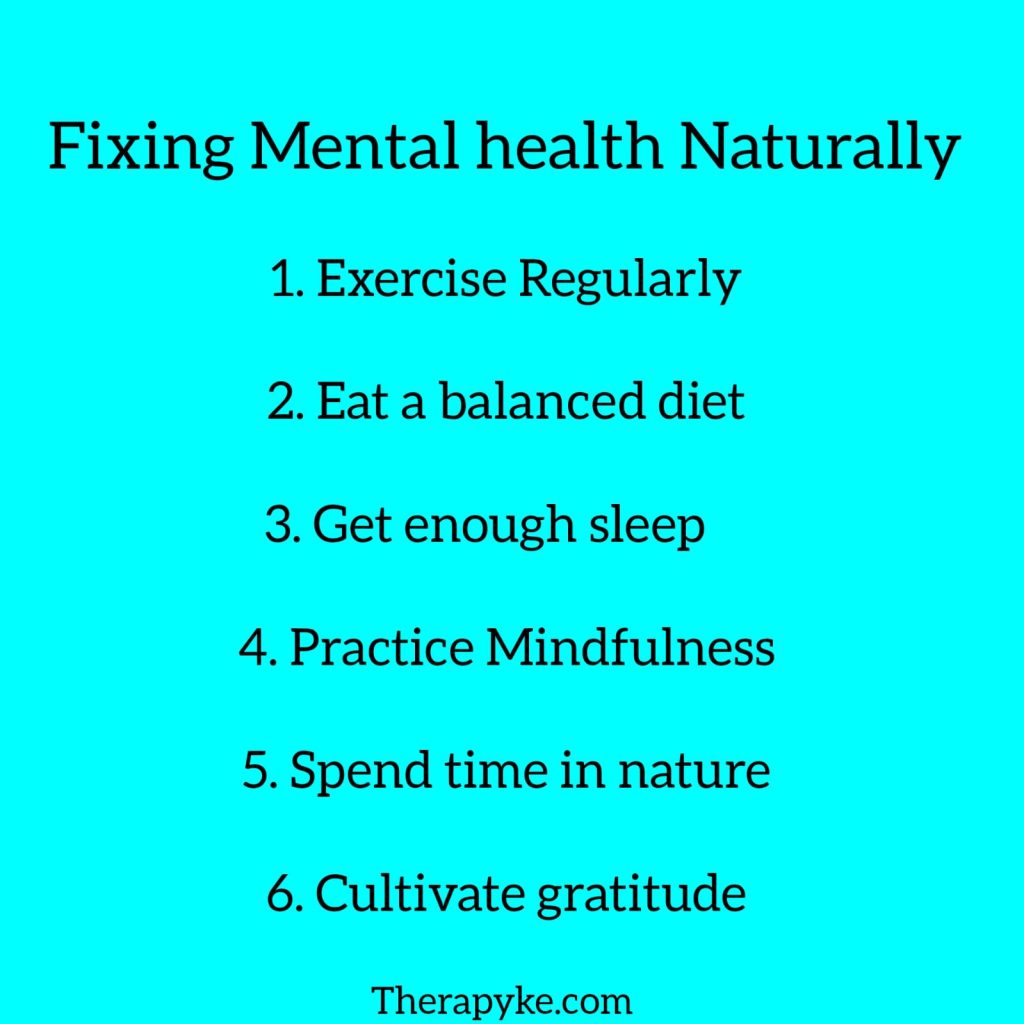
How to Fix Mental Health Without Therapy – 6 Proven ways

They say there’s no health without mental health. If you don’t take care of your mental health, with time, you’ll need to stop doing everything else you’re doing to take care of it. While therapy is a proven and effective way to address mental health challenges, not everyone has access to it or feels ready to take that step.
Fortunately, there are many ways to improve mental health and build resilience without therapy. Wondering how to fix mental health without therapy? Read on. Let’s explore practical, evidence-based strategies for improving mental well-being naturally and at home.
Can You Improve Your Mental Health Without Therapy?
Yes, you can improve your mental health without therapy. While therapy provides valuable tools and guidance, self-help strategies and lifestyle changes can significantly enhance your mental well-being. Many people experience mental health improvements through self-awareness, intentional habits, and support from alternative resources like apps, books, and support groups.
For example, apps like Headspace offer guided meditations and stress-management techniques that you can practice anywhere. Regular use of these resources can help reduce anxiety and improve emotional balance.
How Can I Fix My Mental Health Naturally?
Improving mental health naturally involves nurturing your mind, body, and soul. Here are some strategies:
- Exercise Regularly: Physical activity boosts endorphins, which are natural mood lifters. Aim for at least 30 minutes of exercise most days, whether it’s walking, dancing, yoga, or cycling.
- Eat a Balanced Diet: Your brain thrives on nutrient-rich foods. Include omega-3 fatty acids, whole grains, fruits, vegetables, and lean proteins in your meals. Avoid excessive sugar, caffeine, and alcohol, which can negatively affect mood.

- Get Enough Sleep: Quality sleep is essential for mental health. Establish a consistent bedtime routine, reduce screen time before bed, and ensure your sleep environment is comfortable.
- Practice Mindfulness: Engage in mindfulness exercises such as meditation, deep breathing, or progressive muscle relaxation. These techniques help you stay present and reduce stress.
- Spend Time in Nature: Exposure to natural environments can lower stress levels, boost mood, and improve overall mental well-being. Take regular walks in parks or spend time gardening.
- Cultivate Gratitude: Keeping a gratitude journal can shift your focus from negative to positive aspects of your life. Write down three things you’re grateful for each day to nurture a positive outlook.
How to Deal with Mental Health at Home
Managing mental health at home involves creating a supportive environment and establishing routines that promote well-being. Here are some tips:
- Create a Routine: A structured daily routine can provide stability and reduce feelings of chaos or overwhelm.
- Limit Stressors: Identify and minimize sources of stress in your life. This might mean setting boundaries, saying no to unnecessary commitments, or delegating tasks.
- Foster Connections: Stay connected with loved ones. Even a short conversation with a friend or family member can reduce feelings of isolation and loneliness.
- Pursue Hobbies: Engaging in activities you enjoy can provide a sense of accomplishment and improve mood.
- Set Realistic Goals: Break down larger tasks into smaller, manageable steps. Celebrate each small success to build confidence and motivation.
How to Overcome Mentally Unstable
Overcoming mental instability requires consistent effort and self-compassion. Here are actionable steps:
- Acknowledge Your Feelings: Recognize and accept your emotions rather than suppressing them. Journaling can be a helpful outlet for processing thoughts and feelings.
- Seek Support: While this article focuses on alternatives to therapy, talking to someone you trust about your struggles can be incredibly therapeutic.
- Focus on Self-Care: Prioritize activities that recharge and relax you. This might include taking a bath, reading a book, or spending time with pets.
- Learn Stress-Management Techniques: Practice coping strategies such as grounding exercises, visualization, or listening to soothing music during stressful moments.
- Educate Yourself: Understanding mental health can empower you to make informed decisions.
- Engage in Positive Self-Talk: Challenge negative thoughts and replace them with affirmations. For instance, instead of thinking, “I can’t handle this,” try, “I am doing my best, and that’s enough.”
The Role of Technology in Mental Health Management
In today’s digital age, technology can be a powerful ally in improving mental health. If you prefer self-guided solutions, mental health apps provide exercises, mood trackers, and relaxation techniques to incorporate into daily life.
Additionally, joining online support communities can provide a sense of belonging and encouragement from people facing similar challenges. Want to be connected with a local support group? Reach out to us through our Contact Page today.
Make Mental Health a Priority
Your mental health is the foundation of your overall well-being. While therapy is invaluable for many, there are countless ways to take charge of your mental health without it. By adopting healthy habits, seeking alternative resources, and prioritizing self-care, you can build resilience and thrive.
Remember, taking care of your mental health is not a one-time effort but an ongoing journey. Make it your priority, and don’t hesitate to seek help if you feel overwhelmed.



